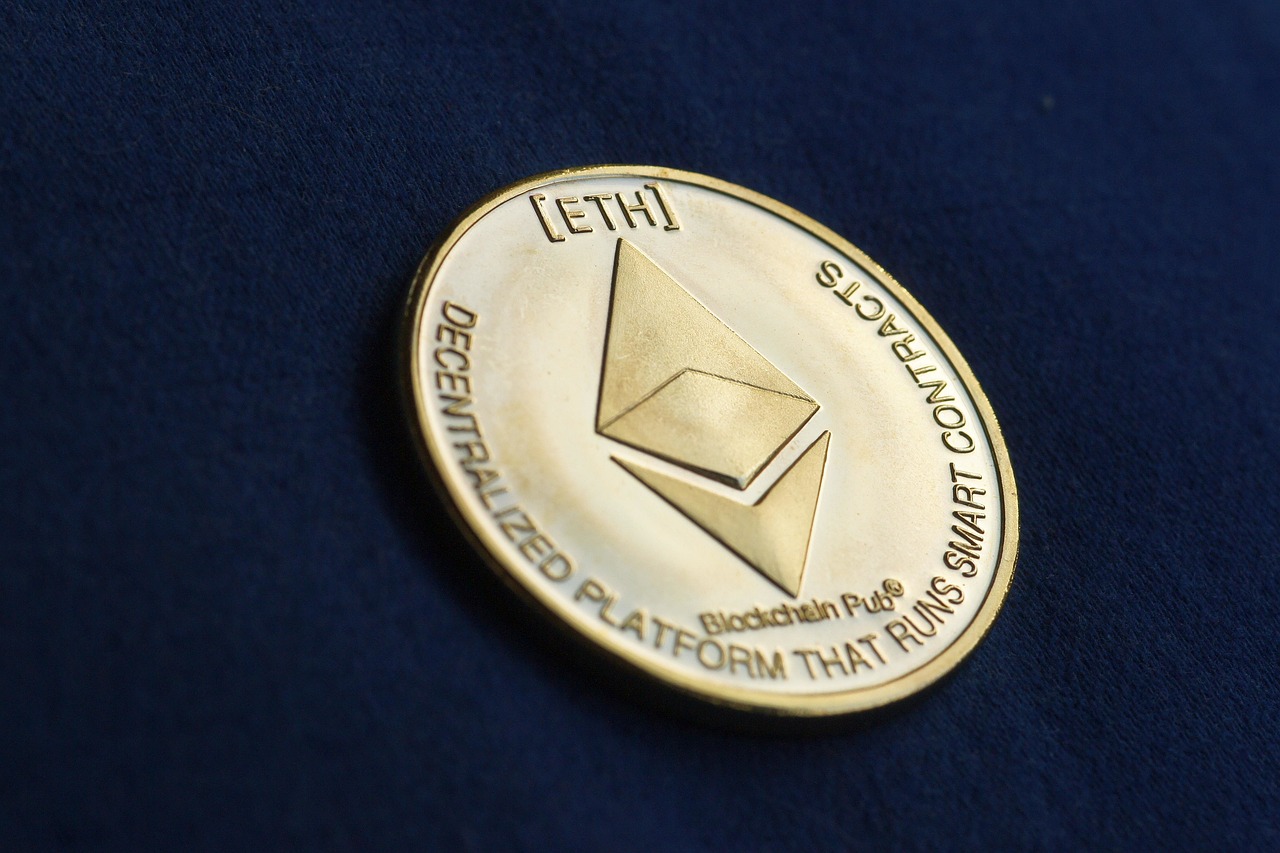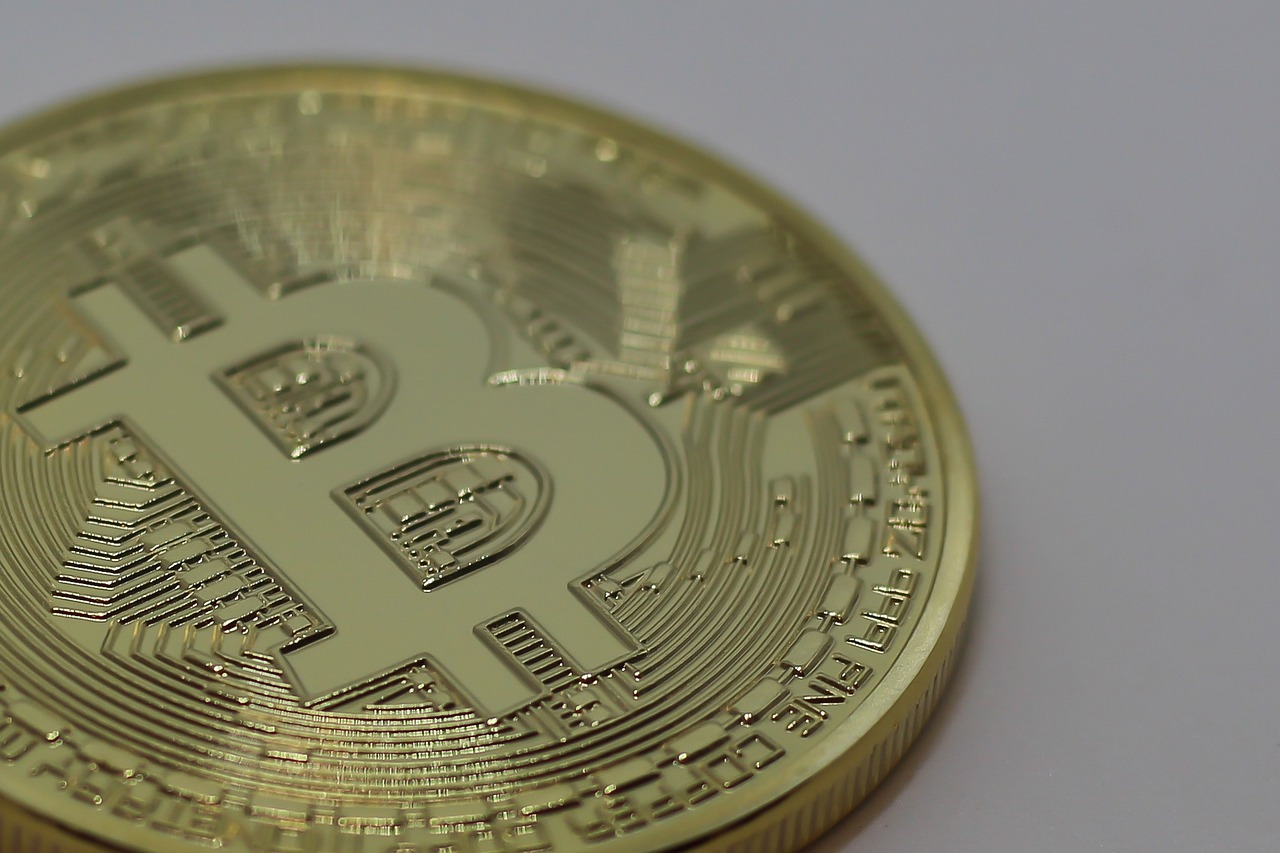Understanding the Role of Cryptocurrency in Economic Sanctions
The world of finance is undergoing a seismic shift, and at the heart of this transformation lies cryptocurrency. As we navigate through the complex landscape of economic sanctions, it becomes increasingly clear that cryptocurrencies are not just a passing trend; they are reshaping the very fabric of global finance. But how exactly are these digital currencies influencing economic sanctions? This article dives deep into the intricate relationship between cryptocurrencies and sanctions, exploring their implications for governments, businesses, and the international community.
To fully grasp the role of cryptocurrency in economic sanctions, we must first understand what economic sanctions are. These measures, imposed by countries or international organizations, are designed to influence the behavior of nations or entities that violate international laws or norms. Traditionally, sanctions have relied on conventional banking systems and financial institutions to be effective. However, the emergence of cryptocurrencies has introduced a new dimension to this equation.
Imagine a world where individuals and entities can transact without the oversight of traditional banks. This is the promise of cryptocurrencies, which operate on decentralized networks. With the ability to bypass conventional financial systems, cryptocurrencies can potentially undermine the effectiveness of economic sanctions. This raises critical questions: Are governments equipped to handle this new challenge? How can they enforce compliance when transactions can occur outside their regulatory purview?
In the following sections, we will explore the evolution of economic sanctions, the basics of cryptocurrency, and the implications of their intersection. We'll look at how the unique characteristics of cryptocurrencies—such as decentralization and anonymity—complicate enforcement efforts and create new challenges for regulators. Additionally, we'll analyze real-world case studies of sanction evasion through cryptocurrencies, providing insight into how individuals and entities exploit these digital currencies to circumvent restrictions.
Furthermore, we will discuss the regulatory responses from governments and international bodies as they adapt to this rapidly changing environment. What strategies are being employed to mitigate the risks associated with cryptocurrency use in sanction evasion? And what does the future hold for the relationship between cryptocurrencies and economic sanctions?
As we journey through this article, we'll not only uncover the challenges posed by cryptocurrencies but also the opportunities they present for innovative compliance solutions. With emerging technologies like blockchain analytics, there is potential for enhanced oversight and enforcement measures. However, achieving effective regulation will require global cooperation and a keen understanding of the hurdles that lie ahead.
Stay tuned as we delve deeper into these topics, revealing the intricate dance between cryptocurrency and economic sanctions, and what it means for the future of global finance.
- What are economic sanctions?
Economic sanctions are restrictive measures imposed by countries or international organizations to influence the behavior of nations or entities that violate international laws or norms. - How do cryptocurrencies work?
Cryptocurrencies operate on decentralized networks, allowing for peer-to-peer transactions without the need for traditional financial institutions. - What challenges do cryptocurrencies pose for economic sanctions?
Cryptocurrencies can complicate enforcement efforts due to their anonymity and the ability to bypass conventional banking systems. - How are governments responding to the rise of cryptocurrencies?
Governments are adapting by implementing regulatory measures to mitigate the risks associated with cryptocurrency use in sanction evasion. - What is the future of cryptocurrency in relation to economic sanctions?
The relationship is evolving, and future trends may include increased regulation and the use of technology to enhance compliance and enforcement.

The Evolution of Economic Sanctions
Economic sanctions have a rich history, evolving from simple trade restrictions to complex financial instruments used by governments to exert pressure on nations, organizations, and even individuals. Initially, sanctions were primarily military in nature, designed to restrict the supply of weapons and military support. However, as global politics became more intricate, so did the methods of enforcing these sanctions. Today, economic sanctions are often seen as a tool for promoting foreign policy objectives without resorting to military action.
One of the main reasons behind the implementation of economic sanctions is the desire to influence the behavior of a target state. For instance, sanctions might be employed to deter aggression, promote human rights, or curb nuclear proliferation. The effectiveness of these sanctions can vary significantly, depending on factors such as international support, the target's economic resilience, and the existence of alternative trading partners. Over the decades, the landscape of sanctions has shifted dramatically, driven by changing geopolitical dynamics and technological advancements.
In the early 20th century, sanctions were relatively straightforward, often involving the outright prohibition of trade in certain goods. However, as the world became more interconnected, sanctions began to target specific sectors of an economy, such as finance, energy, or technology. For example, the sanctions imposed on Iran aimed to cripple its oil exports and restrict its access to international banking systems, thereby exerting pressure on its nuclear program. This nuanced approach reflects a growing understanding that economic leverage can be a powerful tool in international relations.
Moreover, the rise of globalization has introduced new challenges to the enforcement of economic sanctions. With the advent of the internet and digital currencies, the ability to circumvent traditional financial systems has increased. This has led to a situation where governments must continually adapt their strategies to ensure that sanctions remain effective. The emergence of cryptocurrencies, in particular, poses significant challenges, as they offer a level of anonymity and decentralization that complicates enforcement efforts.
To illustrate the evolution of economic sanctions, consider the following table that summarizes key milestones in their development:
| Year | Event | Description |
|---|---|---|
| 1914 | World War I Sanctions | Initial use of economic sanctions to restrict trade with enemy nations. |
| 1990 | UN Sanctions on Iraq | Comprehensive sanctions imposed following Iraq's invasion of Kuwait. |
| 2014 | Sanctions on Russia | Targeted sanctions in response to the annexation of Crimea. |
| 2020 | COVID-19 and Sanctions | Debate over the impact of sanctions on humanitarian aid during the pandemic. |
As we analyze the evolution of economic sanctions, it's crucial to recognize that their effectiveness is often contingent upon the willingness of the international community to enforce them collectively. Unilateral sanctions, while impactful, can sometimes lead to unintended consequences, such as strengthening the resolve of the targeted regime or pushing them to seek alternative alliances. The dynamic nature of global politics means that sanctions must be continually assessed and adapted to remain relevant and effective.
In conclusion, the evolution of economic sanctions reflects the complexities of international relations and the ongoing struggle for power and influence. As new technologies emerge and the global landscape shifts, the methods and strategies of implementing sanctions will undoubtedly continue to evolve, posing both challenges and opportunities for governments and businesses alike.

Cryptocurrency Basics
To truly understand the impact of cryptocurrency on economic sanctions, we first need to grasp the fundamental concepts behind it. At its core, cryptocurrency is a form of digital or virtual currency that uses cryptography for security. This means it’s not just a fancy digital coin; it’s a revolutionary way of thinking about money and transactions. Unlike traditional currencies issued by governments, cryptocurrencies operate on a technology called blockchain, which is a decentralized ledger that records all transactions across a network of computers. This decentralization is crucial because it means no single entity, like a bank or government, has control over the currency.
One of the most attractive features of cryptocurrencies is their anonymity. When you make a transaction using traditional banking methods, a lot of personal information is shared. But with cryptocurrencies, while the transaction details are recorded on the blockchain, the identities of the parties involved are often hidden behind complex cryptographic addresses. This anonymity can be a double-edged sword. On one hand, it provides privacy for users, but on the other hand, it creates challenges for regulators trying to enforce economic sanctions.
Let’s break down some key characteristics of cryptocurrencies:
- Decentralization: No central authority regulates or controls cryptocurrencies, making them resistant to censorship.
- Secure Transactions: Cryptography ensures that transactions are secure and can’t be easily hacked.
- Global Reach: Anyone with internet access can participate in the cryptocurrency market, regardless of their location.
- Volatility: Cryptocurrency prices can fluctuate wildly, which can be both an opportunity and a risk for investors.
Understanding these basics is essential, especially when we consider how cryptocurrencies can be used to bypass economic sanctions imposed by governments. The decentralized nature of cryptocurrencies allows individuals and entities to transfer value across borders without the oversight of traditional financial institutions. This capability raises significant questions about compliance and enforcement of sanctions, as it becomes increasingly difficult for governments to monitor and control these transactions.
Moreover, the rise of cryptocurrencies has introduced new challenges for businesses that must navigate this complex landscape. Companies operating in sectors that are heavily regulated may find it difficult to ensure compliance with sanctions while also engaging in cryptocurrency transactions. The potential for inadvertent violations is a concern, as the anonymity of transactions can obscure the true nature of the parties involved.
In summary, the basics of cryptocurrency are not just about understanding what it is; it's about recognizing how it fundamentally alters the financial landscape. As we delve deeper into its implications for economic sanctions, it becomes clear that the intersection of these two areas is fraught with challenges and opportunities that will shape the future of global finance.

Decentralization and Anonymity
When we talk about cryptocurrency, two words often come up: decentralization and anonymity. These concepts are not just buzzwords; they are foundational elements that make cryptocurrencies unique and, at times, problematic in the context of economic sanctions. Imagine a world where money flows freely and is not bound by traditional banking systems. That's the promise of decentralization. In a decentralized network, no single entity controls the currency, which means that transactions can occur without the oversight of a central authority. This is a double-edged sword. While it empowers individuals by granting them control over their finances, it also complicates the enforcement of sanctions imposed by governments.
The anonymity that cryptocurrencies offer is another critical factor. Unlike traditional financial transactions that are easily traceable through banks and financial institutions, cryptocurrency transactions can be conducted with a level of privacy that makes it challenging for regulators to track the flow of funds. This anonymity is akin to using cash in the real world—once you hand over a $20 bill, it’s nearly impossible to trace where that money goes next. In the realm of cryptocurrencies, this means that individuals and organizations can potentially engage in activities that violate sanctions without immediate detection.
However, it’s important to note that not all cryptocurrencies are created equal when it comes to anonymity. Some, like Bitcoin, offer a pseudonymous experience, where transaction details are recorded on a public ledger, but the identities behind the wallet addresses remain hidden. Others, such as Monero and Zcash, take anonymity a step further by employing advanced cryptographic techniques to obscure transaction details entirely. This distinction raises significant questions for regulators trying to enforce sanctions. How can they ensure compliance when the very nature of these currencies allows for such a high degree of privacy?
As governments and regulatory bodies grapple with these challenges, they are beginning to explore various strategies to mitigate the risks associated with decentralization and anonymity. For instance, some are advocating for the implementation of Know Your Customer (KYC) regulations, which would require cryptocurrency exchanges to verify the identities of their users. While this could enhance compliance, it also risks undermining the fundamental principles of decentralization that many cryptocurrency advocates hold dear.
In summary, the interplay between decentralization and anonymity in cryptocurrencies presents both opportunities and challenges. On one hand, these features empower individuals and promote financial inclusion. On the other hand, they create significant hurdles for governments attempting to enforce economic sanctions. As we move forward, finding a balance between these competing interests will be crucial for the future of both cryptocurrencies and international relations.

Impacts on Compliance
The rise of cryptocurrencies has drastically transformed the landscape of compliance for businesses operating under economic sanctions. Traditional financial systems rely heavily on centralized authorities to monitor transactions and enforce regulations. However, the decentralized nature of cryptocurrencies presents a unique set of challenges. For instance, how can regulators track transactions that happen outside the purview of conventional banking systems? This ambiguity often leaves businesses in a precarious position, caught between adhering to regulations and navigating the murky waters of cryptocurrency.
One of the most significant impacts on compliance is the increased complexity of monitoring financial transactions. In a world where a single transaction can be split across multiple wallets, tracing the flow of funds becomes a daunting task. Companies must invest in sophisticated technology to analyze blockchain data, ensuring they can identify any potential connections to sanctioned entities. This not only requires technical expertise but also raises costs, which can be a burden for smaller businesses trying to comply with regulations.
Moreover, the anonymity offered by cryptocurrencies can lead to unintentional violations of sanctions. Businesses may inadvertently engage with clients or partners who are using cryptocurrencies to circumvent restrictions. For example, if a company accepts a payment in Bitcoin from an unknown source, they might unknowingly be facilitating a transaction for an individual or entity under sanctions. This potential for accidental non-compliance highlights the need for robust due diligence processes.
To navigate these challenges, organizations are adopting a range of strategies. Some businesses are implementing comprehensive compliance programs that include:
- Enhanced Due Diligence: Conducting thorough background checks on clients and partners to understand their connections and potential risks.
- Continuous Monitoring: Utilizing blockchain analytics tools to track transactions in real-time, ensuring that any suspicious activity is flagged immediately.
- Training and Awareness: Educating employees about the risks associated with cryptocurrency and the importance of compliance in avoiding sanctions violations.
Additionally, companies are increasingly seeking guidance from legal and compliance experts who specialize in cryptocurrency regulations. This collaboration can help businesses stay ahead of the curve, adapting their practices in response to evolving regulatory landscapes. As governments continue to refine their approaches to cryptocurrency and sanctions, the importance of compliance will only grow.
In conclusion, the impacts of cryptocurrency on compliance are profound and multifaceted. While the decentralized nature of these digital assets offers new opportunities for innovation and efficiency, it also presents significant risks. Businesses must be proactive in developing compliance strategies that address these challenges, ensuring they remain on the right side of the law in an ever-changing financial environment.
Q1: How do cryptocurrencies complicate compliance with economic sanctions?
A1: Cryptocurrencies are decentralized and often anonymous, making it difficult for regulators to track transactions and enforce sanctions effectively. This complexity can lead to inadvertent violations by businesses that engage with unknown parties.
Q2: What strategies can businesses employ to ensure compliance?
A2: Companies can implement enhanced due diligence, continuous monitoring of transactions, and provide training to employees on the risks associated with cryptocurrency to ensure compliance with economic sanctions.
Q3: Why is it important for businesses to stay updated on cryptocurrency regulations?
A3: The regulatory landscape surrounding cryptocurrencies is rapidly evolving. Staying informed allows businesses to adapt their compliance strategies, reducing the risk of sanctions violations and potential legal repercussions.

Case Studies of Sanction Evasion
As the world becomes increasingly interconnected through digital technologies, the use of cryptocurrencies for sanction evasion has emerged as a significant concern for governments and regulatory bodies. These case studies serve as a lens through which we can examine the real-world implications of cryptocurrencies in the context of economic sanctions. One notable example is the case of North Korea, which has been known to utilize cryptocurrencies to circumvent international sanctions.
North Korea has reportedly engaged in a range of cyber activities to generate revenue through cryptocurrencies. These activities include hacking exchanges and stealing cryptocurrencies, which are then laundered through various channels to obscure their origin. The United Nations has estimated that North Korea has generated hundreds of millions of dollars through these illicit activities, allowing it to fund its nuclear program despite stringent international sanctions.
Another alarming case involves the Iranian government, which has also turned to cryptocurrencies as a means to bypass sanctions imposed by the United States and its allies. With its economy heavily reliant on oil exports, Iran has faced severe financial constraints due to sanctions targeting its oil sales. In response, Iranian authorities have been encouraging the use of cryptocurrencies as a means of trade and transaction. Reports indicate that Iranian businesses have begun to adopt cryptocurrencies to facilitate transactions with foreign partners, effectively creating a parallel economy that operates outside of traditional financial systems.
Moreover, the infamous ransomware attack on Colonial Pipeline in 2021 highlighted how cryptocurrencies can be used for sanction evasion in a more indirect manner. The attackers demanded a ransom in Bitcoin, which they believed would be untraceable. While this incident primarily focused on cybercrime, it underscores the potential for cryptocurrencies to facilitate illicit activities that can indirectly undermine economic sanctions.
In examining these cases, it's essential to recognize the broader implications for international law enforcement. The decentralized nature of cryptocurrencies poses significant challenges for regulators trying to track the flow of funds and enforce sanctions. Traditional financial institutions are required to adhere to stringent compliance measures; however, the same cannot be said for cryptocurrency exchanges, especially those operating in jurisdictions with lax regulations.
To better understand the scale of this issue, consider the following table that outlines key cases of sanction evasion using cryptocurrencies:
| Country | Method of Evasion | Impact |
|---|---|---|
| North Korea | Cyberattacks and theft | Funding of nuclear program |
| Iran | Use of cryptocurrencies for trade | Bypassing oil export sanctions |
| Various | Ransomware payments | Funding of criminal enterprises |
These case studies highlight the urgent need for robust regulatory frameworks that can adapt to the challenges posed by cryptocurrencies. As governments and businesses navigate this complex landscape, the lessons learned from these examples will be crucial in shaping future policies aimed at mitigating the risks associated with sanction evasion.
- What are economic sanctions? Economic sanctions are restrictive measures imposed by countries to influence the behavior of other nations, often in response to violations of international law.
- How do cryptocurrencies facilitate sanction evasion? Cryptocurrencies allow for anonymous transactions and decentralized operations, making it difficult for authorities to track and enforce compliance with sanctions.
- What measures are being taken to combat cryptocurrency-related sanction evasion? Governments are increasingly implementing regulatory frameworks aimed at monitoring cryptocurrency transactions and enhancing compliance measures.
- Can cryptocurrencies be regulated effectively? While challenging, many experts believe that with international cooperation and advanced technology, it is possible to create effective regulations for cryptocurrencies.

Regulatory Responses
As the world becomes increasingly interconnected, the rise of cryptocurrencies has posed significant challenges for governments and regulatory bodies. These digital currencies, with their inherent decentralization and anonymity, complicate traditional enforcement mechanisms used to uphold economic sanctions. In response, various nations have begun to implement regulatory frameworks aimed at mitigating the risks associated with cryptocurrency transactions that may facilitate sanction evasion.
One of the primary approaches has been the establishment of Know Your Customer (KYC) and Anti-Money Laundering (AML) regulations. These regulations require cryptocurrency exchanges and wallet providers to verify the identities of their users, ensuring that they do not facilitate transactions for sanctioned individuals or entities. By enforcing these measures, governments aim to create a more transparent ecosystem where illicit activities can be more easily detected and prosecuted.
Moreover, some countries are taking a more aggressive stance by outright banning certain cryptocurrencies or imposing strict limitations on their use. For instance, nations like China have enacted comprehensive bans on cryptocurrency trading and initial coin offerings (ICOs), citing concerns over financial stability and potential capital flight. This has led to a significant shift in the cryptocurrency landscape, pushing many exchanges to relocate to jurisdictions with more favorable regulations.
In addition to national regulations, there is a growing recognition of the need for international cooperation in addressing the challenges posed by cryptocurrencies. Organizations such as the Financial Action Task Force (FATF) have issued guidelines urging countries to adopt a unified approach to regulate cryptocurrencies, particularly in relation to sanctions compliance. The FATF's recommendations emphasize the importance of sharing information and best practices among countries to effectively combat the misuse of cryptocurrencies in sanction evasion.
Despite these efforts, regulatory responses are not without their challenges. The rapid pace of technological innovation in the cryptocurrency space often outstrips the ability of regulators to keep up. As a result, many regulatory frameworks are still in their infancy, leading to inconsistencies in enforcement and compliance across different jurisdictions. This creates a fertile ground for bad actors to exploit loopholes and evade sanctions.
To further illustrate the complexities of regulatory responses, consider the following table that outlines the various approaches taken by different countries regarding cryptocurrency regulation:
| Country | Regulatory Approach | Key Regulations |
|---|---|---|
| United States | Mixed | KYC, AML, SEC Regulations |
| China | Ban | Complete ban on trading and ICOs |
| European Union | Regulatory Framework | MiCA (Markets in Crypto-Assets) |
| Japan | Regulated | FSA Licensing for Exchanges |
As we look ahead, it is clear that the regulatory landscape surrounding cryptocurrencies will continue to evolve. Governments must strike a delicate balance between fostering innovation and protecting their economies from potential risks associated with digital currencies. The ongoing dialogue between regulators, industry stakeholders, and law enforcement agencies will be crucial in shaping effective strategies to combat the misuse of cryptocurrencies in the context of economic sanctions.
- What are economic sanctions? Economic sanctions are restrictive measures imposed by countries to influence or punish specific behaviors of other nations, entities, or individuals.
- How do cryptocurrencies complicate sanctions enforcement? Cryptocurrencies' decentralized and anonymous nature makes it difficult to track transactions and identify parties involved, complicating compliance with sanctions.
- What are KYC and AML regulations? KYC (Know Your Customer) and AML (Anti-Money Laundering) regulations require financial institutions to verify user identities and monitor transactions to prevent illegal activities.
- Why is international cooperation important in regulating cryptocurrencies? Global cooperation is essential to create a unified approach to regulation, share information, and effectively combat the misuse of cryptocurrencies in sanction evasion.

The Future of Cryptocurrency and Sanctions
The relationship between cryptocurrency and economic sanctions is not just a passing trend; it's a dynamic interplay that is constantly evolving. As we look towards the future, it's crucial to understand the potential trajectories of this relationship. With the rise of digital currencies, we are witnessing a shift that could redefine how sanctions are enforced and how individuals and businesses navigate the complex landscape of international finance. Will cryptocurrencies become a tool for evasion or a means of compliance? The answer lies in the technological and regulatory advancements that are yet to unfold.
One of the most significant factors shaping this future is the advancement of blockchain technology. This technology, which underpins most cryptocurrencies, offers transparency and traceability that can potentially enhance compliance measures. For instance, blockchain analytics tools are being developed to monitor transactions and identify suspicious activities, making it harder for bad actors to exploit the anonymity of cryptocurrencies. As these tools become more sophisticated, they may provide governments with the means to track illicit financial flows more effectively.
Moreover, the regulatory landscape is also in flux. Governments worldwide are beginning to recognize the challenges posed by cryptocurrencies in the context of sanctions. Some are implementing stricter regulations, while others are exploring the possibility of creating their own digital currencies. Central bank digital currencies (CBDCs) are gaining traction as a state-controlled alternative to decentralized cryptocurrencies. These CBDCs could provide a way for governments to maintain control over monetary policy while still embracing the benefits of digital transactions.
However, the road ahead is fraught with challenges. One of the biggest hurdles is the need for global cooperation. Cryptocurrencies operate on a global scale, transcending national borders. This means that unilateral actions by individual countries may not be sufficient to address the complexities of sanction evasion. For effective regulation, nations must work together to establish common frameworks and standards. This kind of collaboration is often easier said than done, as countries may have differing priorities and approaches to cryptocurrency regulation.
As we delve deeper into the future, we can anticipate several trends that may emerge:
- Increased Regulatory Scrutiny: Expect more countries to implement stringent regulations aimed at curbing the use of cryptocurrencies for sanction evasion.
- Technological Innovations: The development of advanced blockchain analytics tools will likely enhance the ability to monitor and trace cryptocurrency transactions.
- Rise of CBDCs: Central banks may increasingly explore digital currencies as a way to maintain control over financial systems amidst the growth of decentralized options.
- Enhanced International Cooperation: Nations might come together to create unified regulations that address the borderless nature of cryptocurrencies.
In conclusion, the future of cryptocurrency in relation to economic sanctions is a complex tapestry woven from technological, regulatory, and geopolitical threads. As these elements continue to evolve, they will shape the strategies of both governments and cryptocurrency users. The question remains: will cryptocurrencies ultimately serve as a means of compliance or a tool for evasion? Only time will tell, but one thing is certain: the conversation surrounding cryptocurrency and sanctions is far from over.
Q1: How do cryptocurrencies help in evading economic sanctions?
A1: Cryptocurrencies offer a level of anonymity and decentralization that can make it difficult for regulatory bodies to track transactions, allowing individuals and entities to bypass traditional financial systems and evade sanctions.
Q2: What role do governments play in regulating cryptocurrencies?
A2: Governments are increasingly recognizing the need to regulate cryptocurrencies to prevent their use in illegal activities, including sanction evasion. This includes implementing laws and creating frameworks for monitoring transactions.
Q3: What are CBDCs, and how do they differ from cryptocurrencies?
A3: Central Bank Digital Currencies (CBDCs) are digital currencies issued and regulated by a country's central bank. Unlike cryptocurrencies, which are decentralized and typically anonymous, CBDCs are designed to be stable and compliant with existing financial regulations.
Q4: Will global cooperation be sufficient to regulate cryptocurrencies?
A4: While global cooperation is crucial, achieving consensus among nations can be challenging due to differing priorities and regulatory approaches. Effective regulation will require ongoing dialogue and collaboration.

Technological Innovations
In the fast-paced world of finance, are not just trends; they are the backbone of how we interact with money, especially in the realm of cryptocurrencies. As the use of digital currencies continues to grow, so does the need for advanced technologies that can help navigate the complex landscape of economic sanctions. One of the most significant advancements in this area is blockchain analytics. This technology allows for the tracking and analysis of cryptocurrency transactions in a way that was previously unimaginable. By providing insights into the flow of funds, blockchain analytics can help authorities identify suspicious activities and potential sanction evaders.
Moreover, with the rise of smart contracts, we are witnessing a shift in how agreements are executed in the cryptocurrency space. Smart contracts are self-executing contracts with the terms of the agreement directly written into code. This technology not only automates processes but also ensures that transactions are transparent and tamper-proof. The implications for compliance with economic sanctions are profound. For instance, if a smart contract is programmed to only execute transactions with entities that are not on a sanctions list, it could significantly reduce the risk of inadvertent violations.
Furthermore, the integration of artificial intelligence (AI) into cryptocurrency platforms is another game-changer. AI can analyze vast amounts of data to identify patterns and anomalies that may indicate sanction evasion. By leveraging machine learning algorithms, regulatory bodies can better predict and prevent illicit activities. This is akin to having a highly skilled detective who never sleeps, constantly monitoring the digital landscape for any signs of wrongdoing.
However, these technological advancements come with their own set of challenges. The rapid development of new technologies often outpaces regulatory frameworks, creating a gap that can be exploited by bad actors. For instance, while blockchain analytics can enhance compliance, they also raise concerns about privacy and data protection. How do we balance the need for security with the fundamental rights of individuals? This is a question that regulators must grapple with as they seek to implement effective measures against sanction evasion.
In addition, the decentralized nature of cryptocurrencies complicates the enforcement of sanctions. Traditional financial systems have established protocols and infrastructures that allow for easier monitoring and compliance. In contrast, the peer-to-peer nature of cryptocurrencies makes it challenging for authorities to track transactions and enforce regulations. This is where technological innovations play a crucial role in bridging the gap between decentralization and regulatory compliance.
As we look to the future, it is clear that technological innovations will continue to shape the relationship between cryptocurrencies and economic sanctions. The ongoing development of blockchain technology, AI, and smart contracts will not only improve compliance measures but also enhance the ability of governments to enforce sanctions effectively. However, it is imperative that these technologies are implemented thoughtfully, taking into account the ethical considerations and potential risks involved.
- What are blockchain analytics? Blockchain analytics refers to the use of technology to track and analyze cryptocurrency transactions, providing insights into the flow of funds and helping to identify suspicious activities.
- How do smart contracts work? Smart contracts are self-executing contracts with the terms directly written into code, automating processes and ensuring transparency in transactions.
- What role does AI play in cryptocurrency compliance? AI can analyze large datasets to identify patterns and anomalies that may indicate sanction evasion, enhancing the ability of regulatory bodies to predict and prevent illicit activities.
- What challenges do technological innovations face? The rapid pace of technology development often outstrips regulatory frameworks, raising concerns about privacy, data protection, and the effective enforcement of sanctions.

Global Cooperation and Challenges
In the rapidly evolving world of cryptocurrency, the need for global cooperation has never been more critical. As nations grapple with the implications of digital currencies on economic sanctions, it becomes clear that no single country can tackle these challenges alone. The decentralized nature of cryptocurrencies poses unique problems that require a unified approach to regulation and enforcement. Without international collaboration, the effectiveness of sanctions diminishes, allowing bad actors to exploit loopholes and evade accountability.
One of the primary challenges in achieving this cooperation lies in the differing regulatory frameworks across countries. For instance, while some nations embrace cryptocurrencies and promote their use, others impose strict bans. This disparity creates a patchwork of regulations that can be confusing and difficult to navigate for businesses and individuals alike. As a result, criminals may find refuge in jurisdictions with lax regulations, further complicating enforcement efforts.
Moreover, the anonymity provided by cryptocurrencies makes it difficult for governments to track transactions and identify the parties involved. This anonymity can lead to a lack of transparency, which is particularly concerning in the context of sanctions that are designed to hold specific individuals or entities accountable. To address these issues, countries must work together to establish common standards and protocols for cryptocurrency transactions.
To facilitate this cooperation, several initiatives and organizations have emerged, aiming to foster dialogue and collaboration among nations. These include:
- Financial Action Task Force (FATF): An intergovernmental organization that sets international standards for combating money laundering and terrorist financing, including guidelines for virtual currencies.
- G7 and G20 Summits: Regular meetings of world leaders that often address the implications of digital currencies on global finance and security.
- Regional Partnerships: Collaborative efforts among neighboring countries to harmonize regulations and share intelligence regarding cryptocurrency transactions.
Despite these efforts, significant hurdles remain. One major challenge is the differing priorities of nations. For instance, while some countries may prioritize economic stability and security, others may focus on innovation and technological advancement. This divergence can lead to conflicts in regulatory approaches, making it difficult to establish a cohesive framework for cryptocurrency governance.
Additionally, there is a need for technological advancements that can enhance monitoring and compliance. Innovations such as blockchain analytics tools are becoming increasingly important in tracking cryptocurrency transactions. These tools allow regulators to trace the flow of funds and identify suspicious activities, thereby improving the ability to enforce sanctions effectively. However, the development and implementation of such technologies require substantial investment and expertise, which may not be readily available in all countries.
As we look to the future, fostering a culture of global cooperation will be essential in addressing the challenges posed by cryptocurrencies in the context of economic sanctions. By working together, nations can develop a more robust regulatory framework that not only protects their interests but also promotes the responsible use of emerging technologies. This collaborative approach will ultimately contribute to a more secure and stable global financial system.
- What are the main challenges of regulating cryptocurrencies?
Regulating cryptocurrencies is challenging due to their decentralized nature, the anonymity they provide, and the varying regulations across different countries. - How can countries work together to address cryptocurrency-related issues?
Countries can collaborate through international organizations, joint initiatives, and by establishing common standards for cryptocurrency regulations. - What role does technology play in enforcing sanctions related to cryptocurrencies?
Technological advancements, such as blockchain analytics, are crucial for tracking cryptocurrency transactions and ensuring compliance with sanctions.
Frequently Asked Questions
- What are economic sanctions?
Economic sanctions are restrictive measures imposed by countries or international organizations to influence the behavior of a targeted country, entity, or individual. They can include trade restrictions, financial penalties, and other economic barriers aimed at achieving foreign policy objectives.
- How do cryptocurrencies work?
Cryptocurrencies are digital or virtual currencies that use cryptography for security. They operate on decentralized networks based on blockchain technology, allowing for peer-to-peer transactions without the need for intermediaries like banks. This decentralization provides users with greater control over their funds.
- What role do cryptocurrencies play in evading sanctions?
Cryptocurrencies can complicate the enforcement of economic sanctions due to their decentralized and often anonymous nature. Individuals and entities may use cryptocurrencies to conduct transactions outside the purview of traditional financial systems, making it challenging for regulators to track and enforce compliance.
- What are the implications of cryptocurrency for global finance?
The rise of cryptocurrencies presents both opportunities and challenges for global finance. On one hand, they can enhance financial inclusion and innovation; on the other hand, they pose risks related to money laundering, fraud, and sanction evasion that require careful regulatory consideration.
- How are governments responding to cryptocurrency-related sanction evasion?
Governments and regulatory bodies are developing various strategies to address the challenges posed by cryptocurrencies. This includes implementing stricter regulations, enhancing monitoring capabilities, and fostering international cooperation to ensure compliance with economic sanctions.
- What are some real-world examples of sanction evasion using cryptocurrencies?
There have been notable cases where individuals and entities have utilized cryptocurrencies to evade sanctions, such as using digital currencies to fund illicit activities or conduct transactions with sanctioned countries. These cases highlight the need for robust regulatory frameworks to prevent such abuses.
- What technological innovations are influencing cryptocurrency regulation?
Emerging technologies, such as blockchain analytics and artificial intelligence, are being utilized to enhance compliance and enforcement measures in the cryptocurrency space. These tools can help regulators track transactions and identify suspicious activities more effectively.
- Why is global cooperation important in regulating cryptocurrencies?
Addressing the challenges posed by cryptocurrencies in the context of economic sanctions requires a coordinated global effort. International collaboration can help establish consistent regulatory standards, share intelligence, and close loopholes that allow for sanction evasion.



















